2017 has already proven to be one of the most significant years in the history of Manchester Metrolink, as it continues to cement its status as the UK’s largest light rail network.
In January, work started on a £350 million, 3.4-mile extension to Trafford Park, before the long-awaited Second City Crossing (2CC) opened just a month later.
By providing an additional route for trams to traverse Manchester City Centre, 2CC was the final piece of infrastructure needed to complete Metrolink’s £1.5 billion ‘big bang’ expansion programme - an eight-year project that delivered a further three lines.
2CC also provided a fitting backdrop to Metrolink’s next milestone achievement in April, when it celebrated the 25th anniversary of trams running for the first time on the network’s inaugural lines to Altrincham and Bury.
The network now comprises seven lines that cover more than 60 route miles and serve 93 stops. Meanwhile, its large-scale physical growth has been accompanied by record levels of patronage - in the year ending September, annual ridership had increased by 11% from 2015-16, to pass the 40 million mark for the first time ever.
There have been changes behind the scenes, too. In March, former Metrolink Director Peter Cushing handed over the leadership baton at network owner Transport for Greater Manchester (TfGM) to his deputy Danny Vaughan.
That was swiftly followed by a change of operator in July, when the KeolisAmey Metrolink (KAM) joint venture took over the reins from outgoing operator RATP Dev Ltd to commence an operations and maintenance concession that could last up to ten years.
KeolisAmey already operates the Docklands Light Railway. It had won the bidding process in Manchester based on its strong commitments to transform customer service across the newly expanded network, and provide consolidation in the wake of a massive capital programme to its client TfGM.
“The key change in this contract is to move from a purely quantitative contract that was mostly based around service delivery, to also having qualitative measures that focus not only on service delivery, but customer service too,” says KAM Managing Director Aline Frantzen.
“TfGM and RATP Dev Ltd had previously focused on expanding the network and procuring new trams, but for the next ten years we will be in an era of relatively stable asset structure reliability. Our mission statement is therefore to achieve continuous improvement and extract maximum value from the investment TfGM has put into it.”
Frantzen travelled over 10,000 miles to take charge at KAM, after switching from Yarra Trams in Melbourne (Australia), which has been operated by a joint venture between Keolis and Downer Rail since 2009.
Her most recent role in Australia was executive director of service delivery. She was responsible for 2,000 employees, 500 trams and 35,500 tram services each week (see panel). She says the transition has been smooth both from a personal and professional perspective, however, as Frantzen, who is originally from France, gets to grips with both a new network and a new country.
“At Yarra Trams I had 85% of the organisation within my remit, including rolling stock and other assets. When you have done that type of role, it’s hard to find another of that size and complexity. But Metrolink has more than 150 miles of track, which is very much in my DNA.
“The transition went well because from day one we were ready and had some of our key staffing commitments in place. Also, from an organisational point of view, our approach was not to come with one plan, but to work with employees and listen to customers and actively share the plan we have been forming for the last three months.
“It’s been quite a busy period since July, with lots of things to put in place. But I’ve been made to feel very welcome at Metrolink, so… so far so good.”
Frantzen says that KAM has already begun to deliver on its contractual obligations to improve security, customer service and reliability, having undertaken to create more than 300 jobs including more drivers, customer service representatives and security staff (known as travel safe officers, TSOs). The organisation has also pledged to use local suppliers as much as possible - at least 40% of its contracts will be awarded to firms within 25 miles of Manchester.
Metrolink passengers will benefit from an increase in some services from early next year, but will also face a change to the fares structure in January. That will mean a rise of approximately 6% in the price of some tickets, approved by Greater Manchester Combined Authority in September.
Frantzen adds: “From a customer point of view, they will have already seen more TSOs in place. And we brought in an extra 36 customer service representatives to work together with the TSOs, all of whom were in place from day one.
“Customers will have already seen a safer network, a cleaner network, and will have had more face-to-face contact with employees. Tackling anti-social behaviour was one of our key objectives because the customers need to feel safe travelling on the network, and we are seeing some significant initial improvements.
“We are accommodating passenger growth so far, and we are committed to timetable changes and improved frequencies to increase capacity on parts of the network - one in January and one in July. TfGM is leading on ticketing strategy and we continue to provide advice and support to design the timetable going forward.”
Key to the success of the concession will also be the strength of KAM’s relationship with TfGM which, although not a formal alliance such as Network Rail has entered into with some train operating companies, Frantzen says is fairly robust.
Within this relationship, KAM could become responsible for implementing elements of TfGM’s 2040 strategy that was published in February, and which sets out an ambitious vision for the City Region’s future transport infrastructure.
She adds: “One commitment we made was to have a more collaborative partnership because that is what TfGM told us they wanted. They wanted a different relationship with their operator - one where we can provide additional value together and where one plus one equals three.
“There are many ways of doing that, the first being governance structure. We have created a joint governance structure so we are linked all the way from the top to the frontline, and every six months we will revisit that structure. We have joint board meetings and we have committed to co-location, meaning some of the key TfGM staff will be coming to work for us.
“Next year we will be creating a joint business plan to link strategy with implementation, which I’m really looking forward to. We can ensure that through the governance, the locations where we operate and through that plan we are completely aligned in delivering on the 2040 vision.”
Much of the focus of TfGM’s 2040 Strategy is on improving integration between different modes of public transport, to support population and economic growth in Greater Manchester over the next two decades. But many suggested improvements touch directly on Metrolink - including a revival of a 1970s plan to tunnel beneath the city centre to add rail or light rail capacity, and to introduce tram-trains on to some of the city’s suburban and financially underperforming heavy rail routes.
Which (if any) of these proposals are accepted will be a matter exclusively for local government, but Frantzen says that KAM is well-placed to help shape those enhancements and inform any final decisions when the time comes.
There is no doubt that the concession calls upon KAM to deliver better value to customers from the assets that are already in place, but Frantzen and her team are also keen to support TfGM in the longer term.
“The first six months of the concession for us is very much head down and implementing our commitments, but we have a lot to deliver and we are clear about getting that part of the work done. We are focused on delivery, but we have started talking about how KAM can provide more support at the front end of the value chain and the network design.
“We’re very conscious that it is TfGM’s right to decide, but sharing knowledge and providing better information will help them shape their strategic plan. Information we provide helps us to help our client to bring the operator into the conversation much earlier, so we can provide the right advice.
“It’s really important that we create a relationship where we can add value to each other and collaboratively serve the needs of the communities we serve, and that’s a really long-term view.”
In terms of the data that KAM can provide, Frantzen has set up a visualisation room at KAM’s Queens Road depot. Here the walls are adorned with charts and white boards displaying daily, weekly and monthly data sets.
An organisational chart includes KAM’s core values, to make staff clear on what the operator has set out to achieve, while a large events board helps staff to prepare for large events in the city or for expected disruption such as Metrolink or Network Rail-scheduled engineering possessions.
The rest of the boards display data for KAM’s self-titled performance pillars: health and safety; social responsibility; value for money; customer service; and operations.
Every Tuesday morning for approximately 45 minutes, Frantzen chairs meetings here with her senior management team to discuss performance, backed up by a more in-depth meeting with wider teams on a monthly basis. She also prefers to work in here and ‘hot desk’ around the rest of the KAM estate, rather than occupying an office. She says it keeps her more immersed and in-touch with the day-to-day operation of the network and with the work of her staff.
She says that TfGM has access to all of the data remotely, and that she has plans to overhaul how customer satisfaction is measured in future, in order to drive more targeted improvements.
“I made a conscious decision not to have an office, which means staff will never know where I’ll be, and I can sit down and work from anywhere. I also don’t have a car, so I commute each day on Metrolink and see the reality each day.
“In the spirit of transparency, clients, unions and staff are all free to visit the visualisation room, because if you try and hide anything, it always results in more complications. So I try and be open and honest.
“The customer feedback data is not good enough, though. It’s six months old and it’s too reactive. I’m looking for a lot more proactive data, and this is a conversation to be had with TfGM on how we can do more dynamic surveys. How can we do working groups with key passenger groups so that we can get to the hearts and minds of as many passengers as possible? We need to more proactively change the customer experience.”
In the immediate future, it is easy to see where KAM’s two biggest operational challenges will come from, in addition to managing increasing demand.
Firstly, in common with other transport operators, KAM faces the ongoing threat of terrorism, in a city where emotions are still raw after the bomb attack at Manchester Arena on May 22.
Secondly, as this issue of RAIL went to press, the Rail Accident Investigation Branch report into the fatal tram crash at Sandilands, Croydon - in which 11 passengers were killed in November 2016 - was due to be published. KAM provided advice and feedback to RAIB on the report’s final recommendations, in its role as a key stakeholder.
The implications to light rail operators such as KAM remain unknown for the moment, but Frantzen is keen to take a lead and proactive role in establishing safer protocols in UK light rail.
“Unfortunately, Metrolink has had some recent experience in how to go from a high UK threat level to critical, and we are very fast in implementing our own plan. We also have KAD to share experience with in London.
“We are really focused on improving safety on the network, and even though most incidents are relatively minor it remains an unsatisfactory state.
“On the Sandilands investigation, we have no authority but we are advising RAIB. And we have put some of our best people on it because we want the best outcome. We have an interest to support the investigation, and I’m keen to get an organisation-wide view and to make sure that everyone at KAM is consulted so we fully understand all of the implications.
“It may have some impact on our infrastructure and rolling stock, so we are keen on making sure they are the right recommendations and do not create any risk in some new way.
“My number one pillar will always be safety because even if we have some really good trends, we are only as good as the day before. Safety has really been designed into this network, but that doesn’t mean it’s enough. It’s a safe network, but we can do better.”
Aline Frantzen
Aline Frantzen graduated from Rouen Business School in her native France in 2000, with a Master’s Degree in Management and Financial Engineering.
She relocated to Melbourne (Australia) to complete an MBA at La Trobe University, before beginning her career in public transport as a business analyst for Melbourne’s tram network - Yarra Trams.
During the first ten years of her career, she took on a broad range of financial and business development roles. She then made the shift to operations - she led operational improvements, managed a couple of large tram depots, and became Director of Operations in 2013.
In 2016, she became the Executive Director, Service Delivery, bringing together network strategy, network planning, tram maintenance, driver management and marketing. As part of her role, she was accountable for nine tram depots, 2,000 employees, the maintenance of 500 trams and the delivery of 35,500 tram services each week.
Aline relocated to Manchester in April 2017 and was appointed as Managing Director of KeolisAmey Metrolink (KAM) on July 15 2017, coinciding with the start of the new Metrolink contract.

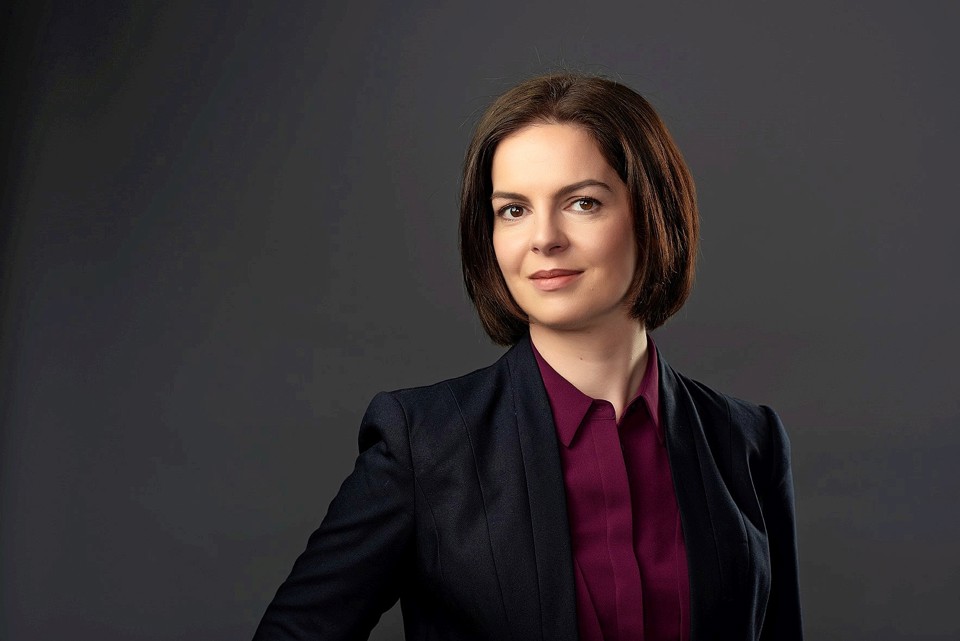

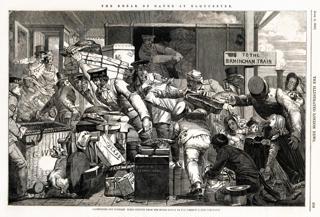
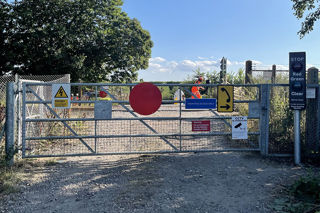
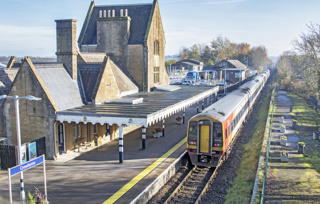
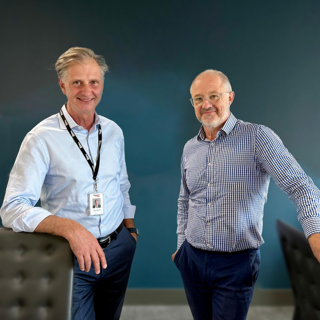











Login to comment
Comments
No comments have been made yet.